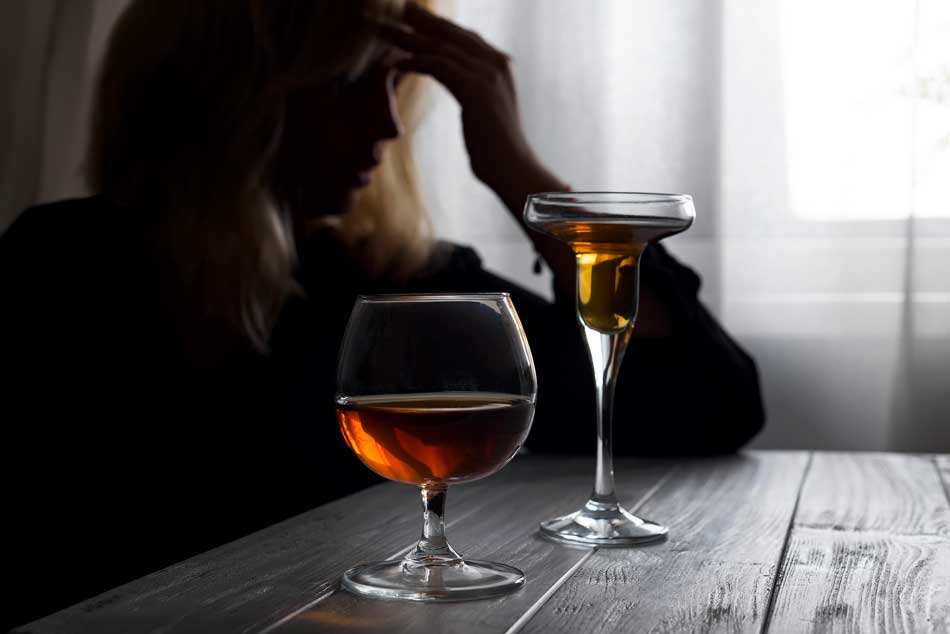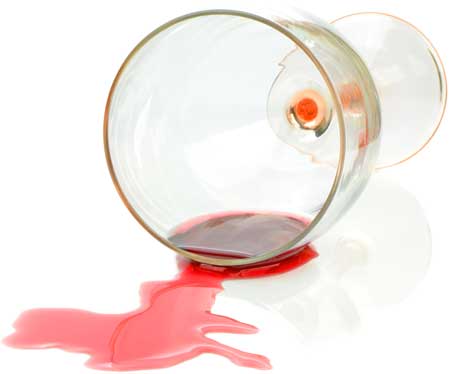Alcohol related deaths among those aged 45 to 64, has risen nearly 25%.
In recent years the opioid epidemic has grown so much that it has overshadowed the more lethal scourge of alcoholism, which claims its victims through a wider range of methods. From grievous health issues like liver cirrhosis, cancer, pancreatitis and alcohol poisoning to alcohol-related suicide, drinking and driving incidents, etc., alcohol has a thousand ways to hurt or kill. Sadly, it’s doing it more than ever. A recent University of Washington ten year study on the topic showed a 35% increase in deaths due to alcohol. One expected find was that deaths in women spiked by an alarming 85%.
Meanwhile deaths among those aged 45 to 64, where alcohol was a contributing factor, rose nearly 25%. And the three top places affected? Washington D.C., Georgia, and Alabama.
Many of the cases involved “binge drinking” among middle-aged women, which continues to be a major reason for emergency room visits, according to Alcoholism: Clinical and Experimental Research. The seriousness of such occurrences can’t be overstated because as people get older, the medical treatment for binge drinking incidents becomes more complex. Instead of just gastric suction (pumping the patient’s stomach), for example, there could be a need for riskier treatment like fluid drainage in bellies and clearing lungs of vomit.
Risk of other issues in older acute or chronic alcohol-abusing patients rises dramatically. Some of the issues are brain hemorrhaging, internal bleeding, risk of heart failure, infections, dementia, stomach ulcers, numbness in the extremities due to nervous system damage…the list goes on and on. Individual alcohol tolerance drops as people age, even as alcohol use itself may creep up, thus causing irreparable damage.
Are southern women with alcohol abuse disorder being ignored?
The issues of alcoholism among Southern women in particular seems to be somewhat “sidelined,” despite the fact that more people are still dying from it than opioid overdoses. Unlike drug abuse, drinking is far more culturally accepted. This allows the problem to go relatively unnoticed and untreated even as the medical costs of alcoholism skyrocket past three times that of opioid addiction treatment, per the Centers for Disease Control and Prevention. Meanwhile, 15% of breast cancer cases have been linked to alcohol, according to the American Journal of Public Health.
The Well Being Trust considered drug, alcohol, and suicide deaths to be “deaths of despair” which are often related to one another. But despair and substance abuse in women populations may tend to go less observed because their drinking patterns and behaviors are often different than those of men. Statistically, fewer women get entangled in public drinking incidents such as DUIs, for example. Instead, they may prefer to drink at home, where many spend more time due to various gender roles or other reasons. What may begin as a drink here or there can, over time, become an addiction problem that doesn’t get sufficient treatment until it’s too late.
Don’t ignore a potential problem.
Although Alcohol Awareness Month is still a few months away, it’s never too soon to look out for signs of a problem, in yourself, a loved one, or a friend.
If you or someone you love is battling addiction, and you are looking for a drug and alcohol abuse treatment program, contact us at Gulf Breeze Recovery. Our friendly and professional staff is available to explain our health-focused recovery program. We offer compassionate holistic treatment and support, helping you or your loved one with addiction reclaim freedom from addiction and rediscover a healthy life and lifestyle.
Contact us at Gulf Breeze Recovery or call: 833.551.2356 to speak to an addiction expert to learn more about our program that has helped so many people overcome their addiction, rediscover their dreams and embrace life.
We help people not just to survive, but to THRIVE®
Alcohol related deaths among those aged 45 to 64, has risen nearly 25%.
In recent years the opioid epidemic has grown so much that it has overshadowed the more lethal scourge of alcoholism, which claims its victims through a wider range of methods. From grievous health issues like liver cirrhosis, cancer, pancreatitis and alcohol poisoning to alcohol-related suicide, drinking and driving incidents, etc., alcohol has a thousand ways to hurt or kill. Sadly, it’s doing it more than ever. A recent University of Washington ten year study on the topic showed a 35% increase in deaths due to alcohol. One expected find was that deaths in women spiked by an alarming 85%.
Meanwhile deaths among those aged 45 to 64, where alcohol was a contributing factor, rose nearly 25%. And the three top places affected? Washington D.C., Georgia, and Alabama.
Many of the cases involved “binge drinking” among middle-aged women, which continues to be a major reason for emergency room visits, according to Alcoholism: Clinical and Experimental Research. The seriousness of such occurrences can’t be overstated because as people get older, the medical treatment for binge drinking incidents becomes more complex. Instead of just gastric suction (pumping the patient’s stomach), for example, there could be a need for riskier treatment like fluid drainage in bellies and clearing lungs of vomit.
Risk of other issues in older acute or chronic alcohol-abusing patients rises dramatically. Some of the issues are brain hemorrhaging, internal bleeding, risk of heart failure, infections, dementia, stomach ulcers, numbness in the extremities due to nervous system damage…the list goes on and on. Individual alcohol tolerance drops as people age, even as alcohol use itself may creep up, thus causing irreparable damage.
Are southern women with alcohol abuse disorder being ignored?
The issues of alcoholism among Southern women in particular seems to be somewhat “sidelined,” despite the fact that more people are still dying from it than opioid overdoses. Unlike drug abuse, drinking is far more culturally accepted. This allows the problem to go relatively unnoticed and untreated even as the medical costs of alcoholism skyrocket past three times that of opioid addiction treatment, per the Centers for Disease Control and Prevention. Meanwhile, 15% of breast cancer cases have been linked to alcohol, according to the American Journal of Public Health.
The Well Being Trust considered drug, alcohol, and suicide deaths to be “deaths of despair” which are often related to one another. But despair and substance abuse in women populations may tend to go less observed because their drinking patterns and behaviors are often different than those of men. Statistically, fewer women get entangled in public drinking incidents such as DUIs, for example. Instead, they may prefer to drink at home, where many spend more time due to various gender roles or other reasons. What may begin as a drink here or there can, over time, become an addiction problem that doesn’t get sufficient treatment until it’s too late.
Don’t ignore a potential problem.
Although Alcohol Awareness Month is still a few months away, it’s never too soon to look out for signs of a problem, in yourself, a loved one, or a friend.
If you or someone you love is battling addiction, and you are looking for a drug and alcohol abuse treatment program, contact us at Gulf Breeze Recovery. Our friendly and professional staff is available to explain our health-focused recovery program. We offer compassionate holistic treatment and support, helping you or your loved one with addiction reclaim freedom from addiction and rediscover a healthy life and lifestyle.
Contact us at Gulf Breeze Recovery or call: 833.551.2356 to speak to an addiction expert to learn more about our program that has helped so many people overcome their addiction, rediscover their dreams and embrace life.
We help people not just to survive, but to THRIVE®
About Gulf Breeze Recovery:
Gulf Breeze Recovery, unlike other treatment centers in Florida, is a non 12 step holistic drug and alcohol rehab that is changing the future of addiction treatment with their THRIVE® (Total Health Recovery) program focused on overcoming chronic relapse.
Gulf Breeze Recovery’s THRIVE® program is a non 12-step approach designed for those who are looking for a drug and alcohol treatment program to produce a different and positive result.
This non-12 step program allows you to drive beyond your addictions and promotes a new outlook on life.
We are licensed by the Florida Department of Children and Families, and our last audit scored 99.7! Also, we are gold certified by the Joint Commission.
About Gulf Breeze Recovery:
Gulf Breeze Recovery, unlike other treatment centers in Florida, is a non 12 step holistic drug and alcohol rehab that is changing the future of addiction treatment with their THRIVE® (Total Health Recovery) program focused on overcoming chronic relapse.
Gulf Breeze Recovery’s THRIVE® program is a non 12-step approach designed for those who are looking for a drug and alcohol treatment program to produce a different and positive result.
This non-12 step program allows you to drive beyond your addictions and promotes a new outlook on life.
We are licensed by the Florida Department of Children and Families, and our last audit scored 99.7! Also, we are gold certified by the Joint Commission.
Want to read more about Gulf Breeze Recovery’s non 12 step, holistic drug and alcohol rehab? Check out some of our latest posts:
Researchers Identify Role of Key Brain Signaling Protein in Alcohol Use Disorder
January 29, 2021
College Students Who Returned Home Due to Pandemic Drinking Less
January 29, 2021
Overdose Deaths Soar in the Midst of a Pandemic
January 27, 2021
Alcoholism Today in Seniors and Younger Generations
January 20, 2021
End Chronic Relapse and Start a New Life!
At Gulf Breeze Recovery we don’t want you to have just a great recovery, we want you to have a great life!












